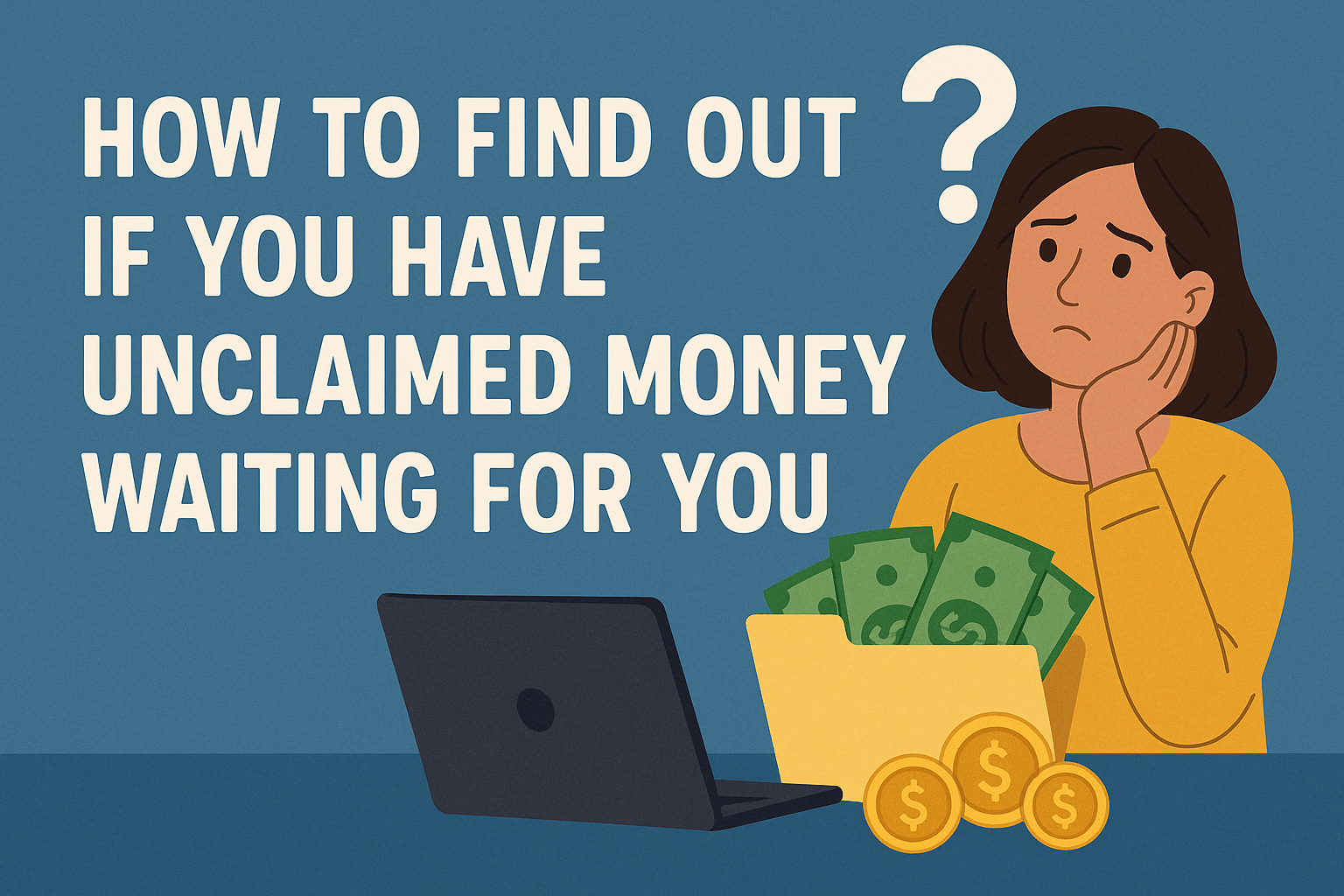What if there was money sitting out there in your name—wouldn’t you want to know?
Every year, billions of dollars in unclaimed property pile up in government accounts and financial institutions. While it may sound unlikely, it’s actually very common. From forgotten paychecks and utility deposits to old bank accounts and insurance refunds, people often lose track of money simply because they didn’t know it was owed to them—or didn’t know where to look.
If you’ve ever moved, changed jobs, closed an account, or even paid a utility bill, there’s a chance you could have unclaimed money. The best part? Checking is quick, free, and simple.
What Is Unclaimed Money?
Unclaimed money refers to any financial asset that hasn’t been accessed by its rightful owner for a certain period of time—usually 1 to 5 years, depending on state law and the type of account.
Some of the most common examples include:
-
Apartment or utility security deposits
-
Old paychecks from past jobs
-
Inactive checking or savings accounts
-
Insurance refunds or medical bill overpayments
-
Unclaimed stock dividends or bond interest
-
Forgotten retirement accounts (like a 401(k) from a former employer)
-
Class action lawsuit settlements
-
Life insurance payouts
When the company, bank, or agency can’t reach you, the funds are turned over to your state’s unclaimed property office. From there, the state holds your money until you claim it. And unlike other programs, there’s no expiration date—it’s yours for life.
How to Search for Unclaimed Money Safely
The most reliable way to search is through official state-run websites. Two trusted tools are:
-
Unclaimed.org: Run by the National Association of Unclaimed Property Administrators (NAUPA), it connects you to the unclaimed property website for every U.S. state and territory.
-
MissingMoney.com: A government-supported tool that lets you search across multiple states at once using your name and location.
Tips for searching:
-
Check every state you’ve lived or worked in.
-
Try different versions of your name (middle initials, maiden names, etc.).
-
Look up deceased relatives—you may be entitled to funds through inheritance.
If you locate money, you’ll need to file a claim, which typically involves proving your identity (with a driver’s license or utility bill) and sometimes linking yourself to the original account (like showing proof of an old address).
How Much Could You Find?
Amounts vary widely. Many people find small refunds of $25 or $50, while others uncover thousands from insurance policies, stock dividends, or forgotten retirement funds.
There have even been cases of individuals recovering tens of thousands of dollars—but those are less common. Think of this process as a no-risk check: you may not find a windfall, but even a small amount can make a helpful difference.
Common Myths About Unclaimed Money
Let’s clear up some misconceptions:
-
Myth: “They’ll contact me if money is owed.”
Reality: Most agencies don’t have updated contact details, so they won’t track you down. -
Myth: “You have to pay a company to search.”
Reality: Official searches are 100% free. Avoid third-party “finder” services that charge fees. -
Myth: “It’s too late to claim.”
Reality: In almost all states, your funds are held indefinitely. There’s no time limit.
Helpful Tips Before Filing a Claim
-
Have proof of identity ready (driver’s license, Social Security number).
-
Use a secure internet connection when submitting documents.
-
Track your claim—processing may take a few weeks to a few months.
-
Set a reminder to check again next year. States receive new unclaimed property daily, so funds may appear later even if nothing shows up now.
Final Thoughts
Looking for unclaimed money is one of those rare tasks that costs nothing, only takes a few minutes, and could actually put cash back in your pocket. Whether you discover a forgotten $20 rebate or a much larger amount, the money is legally yours.
With rising costs everywhere, even a little unexpected help can go a long way. Take a few minutes today—it may turn out to be the easiest money you’ve ever found.
Disclaimer: Triviabright.com is a privately owned platform and is not affiliated with or endorsed by any government agency. The information provided here is for general educational purposes only and should not be considered legal or financial advice. Government programs, databases, and procedures may change without notice. While we aim to provide accurate, up-to-date content, we encourage readers to consult official state or federal websites directly for the most current information. We do not process claims for government-held property, nor do we guarantee eligibility or the existence of unclaimed funds.

